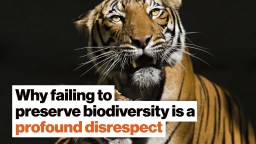conservation
Satellite movie shows clouds of carbon monoxide drifting over South America.
If we make the right choices, there’s hope for the future.
▸
4 min
—
with
The loss of elephants accelerates climate change.
Study finds that carbon dioxide emissions may trigger a reflex in the carbon cycle, with devastating consequences.
Here are just two of the practical and philosophical crises surrounding biodiversity breakdown.
▸
3 min
—
with
2018’s winter was particularly harsh on U.S. honeybees. What’s causing bee populations to plummet, and what can we do about it?
Its scarcity could impact scientific research as well as the high-tech industry.
Digitally recording historical sites could serve as insurance in the case of disaster.
Tracking project establishes northern Argentina is wintering ground of Swainson’s hawks
The Megachile pluto is about four times the size of a honeybee.
Despite tens of millions of dollars pouring into new technologies, a ‘clean’ burger remains elusive.
White-nose syndrome is nearly as lethal to bats as the Black Plague was for humans.
More farm space equals more carbon.
“This is a great example of a forest restoration plan which is both good for the people and good for nature,” one researcher said.
Zoologist Lucy Cooke explains why humans are totally wrong about panda sex, and why captive breeding backfires.
▸
10 min
—
with
Protected animals are feared to be headed for the black market.
A new paper in Nature adds urgency to the fight against climate change.
Assigning human values and morals to wild animals will only end in heartbreak. And possible necrophilia.
▸
7 min
—
with
The modern ocean can be a dangerous place for whales.
Maybe the only chance they have to tell their story before they’re gone.
If you want to know what makes a Canadian lynx a Canadian lynx a team of DNA sequencers has figured that out.
Poachers trade on a black market estimated to total $40 billion. It’s impossible to stop every poacher, but new technology could bolster the efforts of conservationists by putting a set of eyes in the sky.
How can we stop extinction? One solution scientists have been developing for decades is de-extinction — the process of resurrecting extinct species through genetic engineering.























